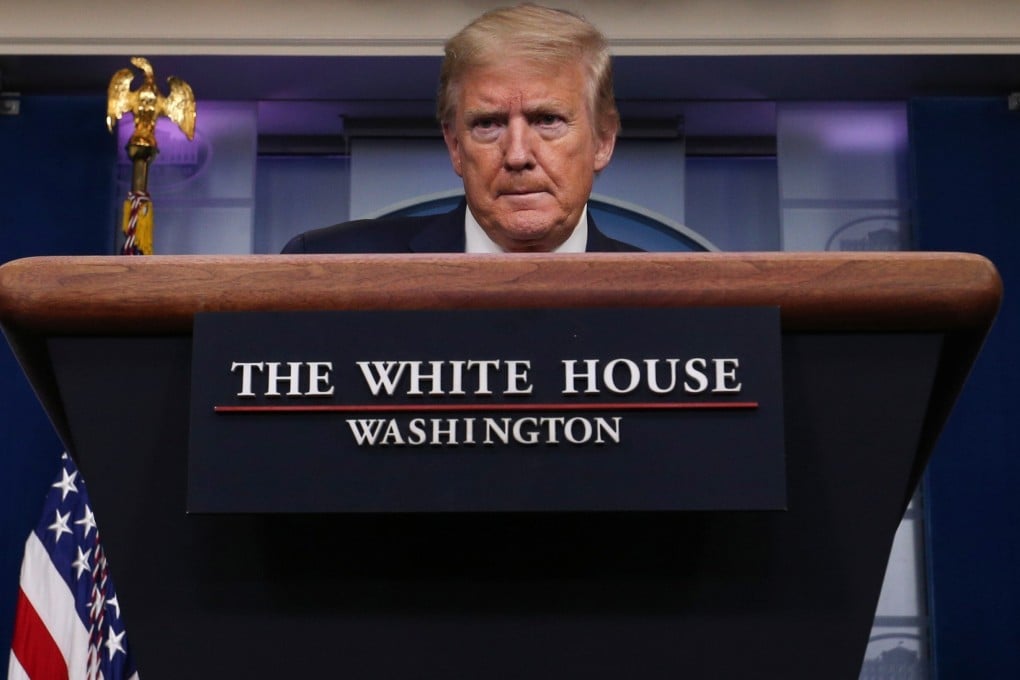Coronavirus: Trump plays down threat of second deadly wave
- US president suggests the deadly disease ‘may not come back at all’
- Medical experts say the virus could pose threat to US for years to come

US President Donald Trump on Wednesday played down concerns over a possible second wave of coronavirus infections later in the year, saying it “can never be like anything that we’ve witnessed right now”.
The remarks came as the head of the US health protection agency the Centres for Disease Control and Prevention warned of an even more “difficult” time next winter because two respiratory illnesses could be circulating at the same time – the novel coronavirus and influenza.
Trump asserted at a press conference that the return of the coronavirus could be “some little flare-up” that can be quickly contained.
“In my opinion from everything I’ve seen, it can never be like anything that we’ve witnessed right now,” partly due to better containment measures, Trump said, though admitting that seeing the coronavirus and flu coming together is “not great” and could bring about a “mess”.
Trump also suggested the possibility that the coronavirus may “not come back at all,” although the view was quickly refuted by Anthony Fauci, the nation’s top expert on infectious diseases, during the same press conference.
“We will have coronavirus in the fall. I am convinced of that because of the degree of transmissibility that it has, the global nature,” Fauci said, while adding that the scale of the outbreak would depend on containment measures.